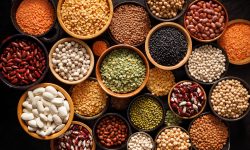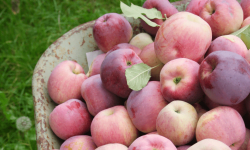Donating 10,000 meals in Pulses! For #WorldPulsesDay Spud is donating 10,000 meals worth with pulses…
Much like an onion, there are a lot of layers to the organic produce versus conventional produce argument. The thickest layer of all? Nutrients, of course! But, breaking down nutrients goes deeper than vitamins and minerals, but also antioxidant properties. That’s exactly what a study published by ACP looked into, using conventional and organic onions as their subjects of choice.
First, let’s talk about why people choose organic in the first place. Some reasons include less pesticidal use, lighter environmental impact, or even taste preference, but a major reason is that we generally tend to think they’re healthier. To any given person,what makes a “healthy” food can carry a different definition. Some may look at the chemicals involved in the growing process, others may look at vitamins and minerals, and some look at how specific foods have an effect on specific parts of the body. While past studies have confirmed that both organic and conventionally grown produce are similar in vitamins and mineral nutrients, they didn’t look at other beneficial nutrients.
Organic onions offer more antioxidants than conventional ones
After five years of believing that organic growing methods offered no additional nutritional value to foods, a six-year research study conducted by Teagasc Food Research Centre and University College Cork in Ireland found something that went overlooked: antioxidants.
Testing two varieties of onions in both organic and conventional growing environments, they found that the organic onions had noticeably higher levels of antioxidants. The difference, surprisingly, doesn’t come from pesticides/herbicides, rather from the organic soil treatment. The soil treatment helped boost flavonols by 20% over conventional onions and increase antioxidant activity in both varieties of onions. Unfortunately, they’ll still make you cry the same amount when cutting (but there are ways to prevent that).
| YOU HAVE TO TRY THESE 5 DELICIOUS ONION RECIPES |
While all of this sounds great, I started wondering “what exactly do antioxidants and flavonoids do?”
Well, for one thing, antioxidants combat free radicals, which are clumps of highly reactive clumps of atoms that cause damage to cells, leaving them weak or dead. Too many free radicals can lead to an increased risk of cancer, quicker development of symptoms of aging, and various other diseases.
While the body produces some antioxidants to fight these little buggers, it needs more. Eating foods high in antioxidants, such as organic onions, can help with this. It also helps with something that many people worry about when battling the struggles of adulthood: aging.
The fight against free radicals is also the fight against aging. According to a study published by Dermatoendocrinol, antioxidants help counter collagen degradation and help protect the skin from harmful UV radiation. This helps prevent the development of wrinkles and other symptoms of photoaged skin.
You’ll need to know more than what you find on a nutritional fact sheet for you to determine the nutritional value of a food. On top of a lack of pesticides and other chemicals, this study helps open the door to understanding what additional benefits organic foods may have over their conventional counterparts.
| SHOP ORGANIC ONIONS AT Spud.CA |




